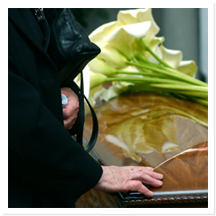 Funerals are expensive and before planning the memorial service families need to know the funeral payment options. Because of the high cost, many families choose to save money for their, or their loved one’s, funeral. There are a number of different options available for prepaying and guaranteeing the final expenses. Below are the forms of funeral payment that the family of the deceased can choose from to compensate the funeral home’s financial needs during this time of grievance.
Funerals are expensive and before planning the memorial service families need to know the funeral payment options. Because of the high cost, many families choose to save money for their, or their loved one’s, funeral. There are a number of different options available for prepaying and guaranteeing the final expenses. Below are the forms of funeral payment that the family of the deceased can choose from to compensate the funeral home’s financial needs during this time of grievance.
Funeral Payment Options
1. Cash or Check
The family members can opt to pay for the funeral using cash. There are two types of cash payments. One of the members of the family can simply write a check for payment to the funeral service provider. Or, they can pay using cash in hand. According to many people, cash payments for funeral service are typically only made for direct cremation or more simple and inexpensive funeral services.
2. Credit Card
Almost all funeral homes are now accepting credit cards as a form of funeral payment. The funeral home can charge the entire funeral service to one credit card or split it between multiple credit cards. Or, a combination of cash, insurance, and credit may be used.
3. Insurance Death Benefits
This is a common means of funeral payment for the funeral of a deceased. A family member has to undergo a process before he fully claims the insurance benefits. The beneficiary of the insurance policy must bring it to the funeral home and show it to the funeral director who then calls the insurance provider to confirm that the insurance policy is legitimate. Then the beneficiary will sign some forms giving the funeral director a portion of the accumulated benefits to spend on funeral services.
4. Funeral Trust Plans
Funeral trusts are widely used to set aside money for the funeral costs. You can establish a funeral trust by depositing money into an interest bearing trust account. The amount that you are required to deposit into the account each month is based on the number of years you will be contributing to the fund and the amount you require for the funeral payment. When you die, the trust funds will be disbursed to the funeral home, or other service provider that you have designated as the primary beneficiary in the trust agreement.
There can also be times when an individual dies without any means for funeral payment. There is often government assistance or other organizations available to assist with the funeral costs. It is recommended to speak to a funeral home and plan the funeral in advance whenever possible. This will allow you to set aside money each month and be prepared to cover the final expenses when the time comes.
